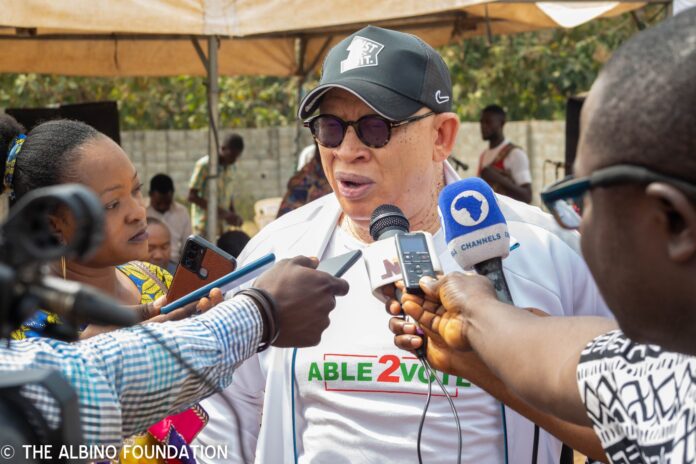Emameh Gabriel in Abuja,
As the world marked the International Day for Persons with Disabilities, the call for governments at all levels in Nigeria to revive policies designed to support disability inclusiveness in the country has been resonated.
This was even as the call for the criminalisation and sanctions for head of government ministries, departments and agencies (MDAs) and the private sector over failure to implement policies for the full integration of persons with disability into the society was re-echoed.
The founder and Chief Executive Officer of the Albino Foundation in Nigeria, Ambassador Jake Epelle, made the call yesterday in Abuja in commemoration of the International Day for Persons with Disabilities and campaigned for voters education organised for internally displaced persons (IDPs) in FCT, to sensitise and create awareness among IDPs on their rights to participate in politics and electoral processes.
Speaking at the IDPs voters’ education campaign at the Durumi IDP’s camp, FCT, Jake hinted that the eradication of stigmatisation against people living with disability was not only the sole responsibility of the government but all well-meaning Nigerians.
According to him, “the fight to achieve a disability-inclusive in Nigeria was “a herculean task that demands all hands on deck to attain success. Despite the many challenges and disappointments arising from failed institutions, policies, and promises, we must continue to push forward against discrimination of persons with disabilities as a people and make the right demands for inclusion.
“We call on the executive to revive its policies designed to support disability inclusion in Nigeria. We also call for the criminalisation and stringent punishment of heads of MDAs and private sectors that fail to implement policies that provide for the full integration of persons with disabilities into the society.
“Civil society organisations, including the media, must always remember that they remain the hope of persons with disabilities in eradicating discrimination. Thus, they should not relent in educating and mobilizing Nigerians to abhor discrimination against persons with disabilities, nor should they be distracted from holding the government accountable for their promises of curbing the exclusion of PWDs.
“We believe in the government’s ability to entrench disability inclusion hence, we enjoin it to work to identify, remove, and prevent barriers that still exist, increase the opportunities available to persons with disabilities, and uphold honesty and integrity in its dealings and intentions.
“Discrimination has remained the major obstacle to persons with disabilities for sustainable development, employment, and accessing quality standards of living in Nigeria. Hence eradicating it should not be a choice but a responsibility for all,” he appealed.


